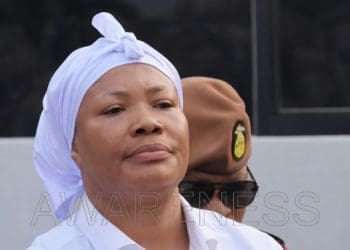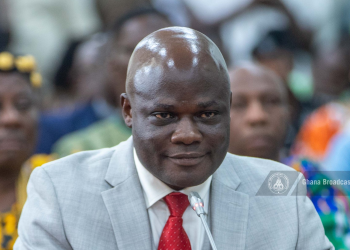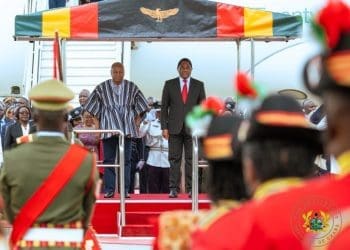The Ghana Medical Association (GMA) has elected Professor Ernest Yorke as its new President, marking a significant transition in the leadership of the country’s foremost professional body for medical practitioners.
Prof. Yorke, a respected educator, clinician and health advocate, emerged victorious after securing 1,857 votes, representing 53.6% of the total valid ballots cast in Saturday’s keenly contested elections.
His closest contender, Dr Justice Yankson, a former General Secretary of the Association, conceded defeat after the Electoral Committee announced the results late on November 15, 2025.
The announcement was made by the Chairperson of the GMA Electoral Committee, Dr Rita Larsen-Reindorf, who noted that the poll was peaceful, transparent and reflective of members’ confidence in the Association’s democratic processes.
The election, which formed part of activities marking the GMA’s 67th Annual General Meeting, drew participation from doctors across the country, including house officers, medical officers, specialists and consultants.
Delegates cast their ballots in person and via approved electronic channels, ensuring broad representation in the choice of new leadership.
Prof. Yorke’s victory has been widely described as both a recognition of his longstanding service to the Association and a call to steer the GMA through a particularly challenging period marked by concerns over conditions of service, migration of health professionals, and the broader need for reforms within Ghana’s healthcare system.
Over the years, he has earned a reputation for being a strong advocate for improved working conditions, ethical medical practice and enhanced training opportunities for young doctors.
Before assuming the highest office of the Association, Prof. Yorke served in several leadership capacities within the GMA, including as a member of the Junior Doctors’ Representative Council, Divisional Secretary, Divisional Vice Chair, and a member of the GMA Council.
His colleagues often cite his inclusive leadership style, attention to detail and deep understanding of the Association’s internal dynamics as attributes that set him apart.
In brief remarks after the declaration of his victory, Prof. Yorke expressed gratitude to the membership for the confidence reposed in him.
He pledged to prioritise issues affecting the welfare of doctors and to strengthen the Association’s role in national health policy discourse.
He also emphasised the need for unity within the GMA, noting that the organisation’s strength lies in its ability to collectively advocate for improved healthcare delivery and professional standards.
The newly elected President is expected to lead the GMA at a time when the sector faces rising attrition rates, growing demands for better infrastructure, and the persistent challenges of equitable healthcare access across the country. Observers say his presidency will be pivotal as the Association engages the government, regulatory bodies and development partners on policies affecting the medical profession.
With the election concluded, attention now shifts to the swearing-in ceremony and the expectation that the new leadership team will begin consultations with stakeholders to outline its priorities for the coming year.
Prof. Yorke’s stewardship is anticipated to shape the direction of the GMA’s advocacy and internal reforms, as members look forward to a tenure characterised by dialogue, strategic engagement and renewed commitment to professional excellence.












